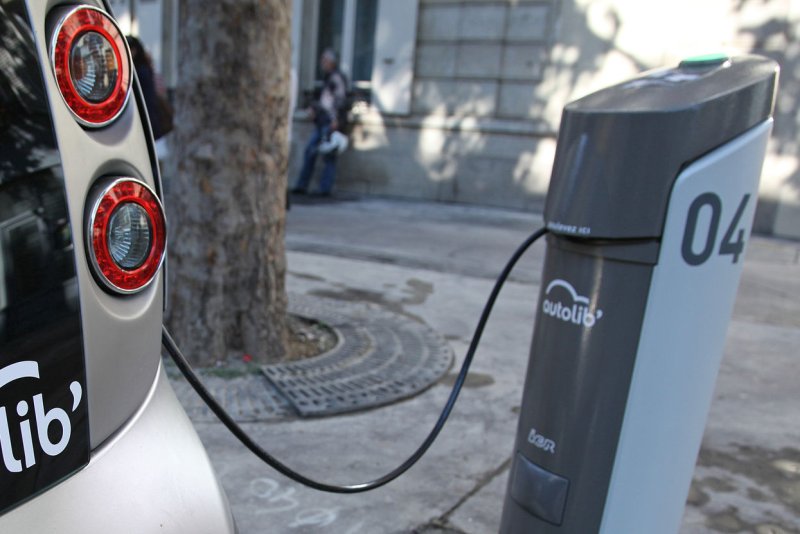The European Commission signs off on German plans to steer investments toward charging stations for electric vehicles. Photo by David Silpa/UPI. |
License Photo
Feb. 13 (UPI) -- A plan by the German government to expand access to charging stations for electric vehicles is in line with state-aid rules, the European Commission said.
The German government plans to steer $320 million over four years to the increase access to high-speed charging stations for electric vehicles. Margrethe Vestager, a European commissioner in charge of competition policy, said the rules are in line with market guidelines for state assistance.
"Electric vehicles can provide real benefits to society by reducing harmful emissions and noise pollution," she said in a statement. "The German support scheme will encourage consumers and businesses to use electric vehicles."
The European Commission said the state support would align with broader bloc-wide efforts to improve air quality through low-emission vehicle options that fall under the European Union's decarbonization agenda.
Norway and the Netherlands lead Europe with market shares for electric vehicles, with 23 percent and 10 percent respectively. Germany as a whole has one of the greener economies in Europe, however, and Austrian energy company OMV announced an initiative in the country last year that envisions 400 hydrogen filling stations for alternative vehicles by 2023.
German utility group RWE, meanwhile, said it would work with port officials to create infrastructure to fuel vessels with cleaner-burning liquefied natural gas.
In January, the city of Essen in German was honored with a green-city award by a European body for transforming itself from a steel to an environmental leader. For future goals, the city aims to reduce car travel, a main contributor to greenhouse gas emissions, by 29 percent by 2035.
Bloc-wide, the transportation sector still accounts for a significant portion of total air pollution, though a report from the European Environment Agency found abatement support growing at the national and city levels.















